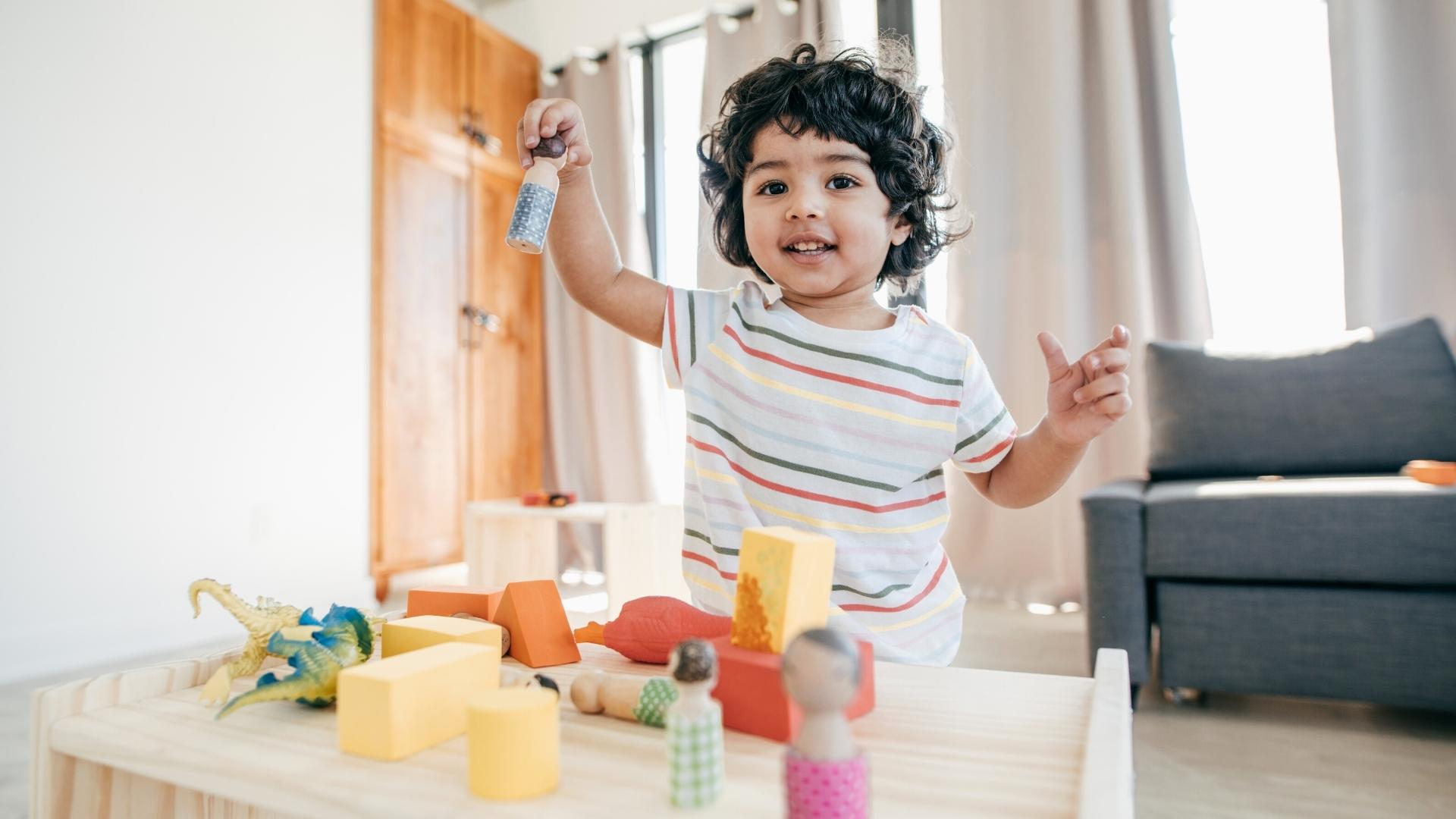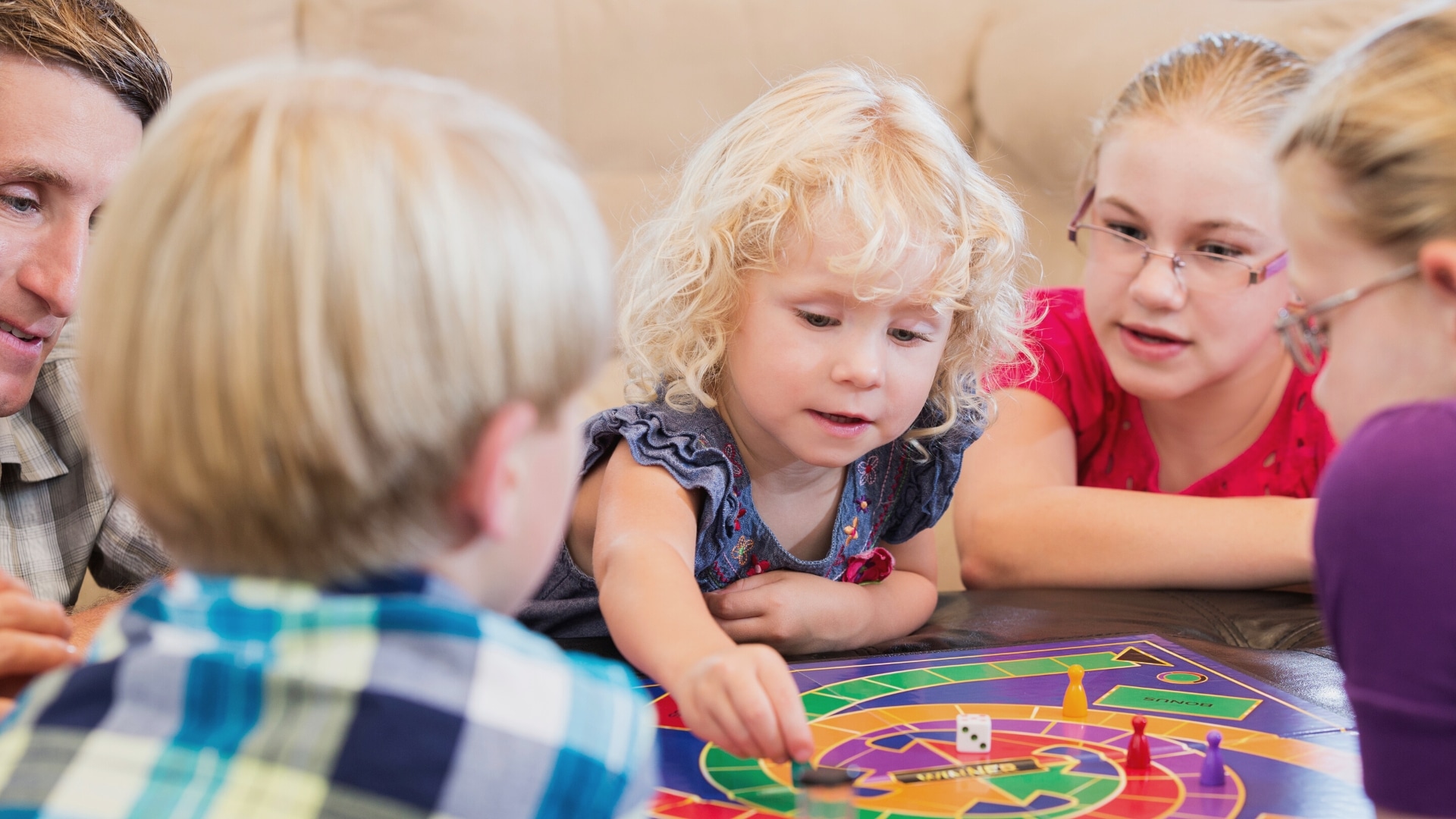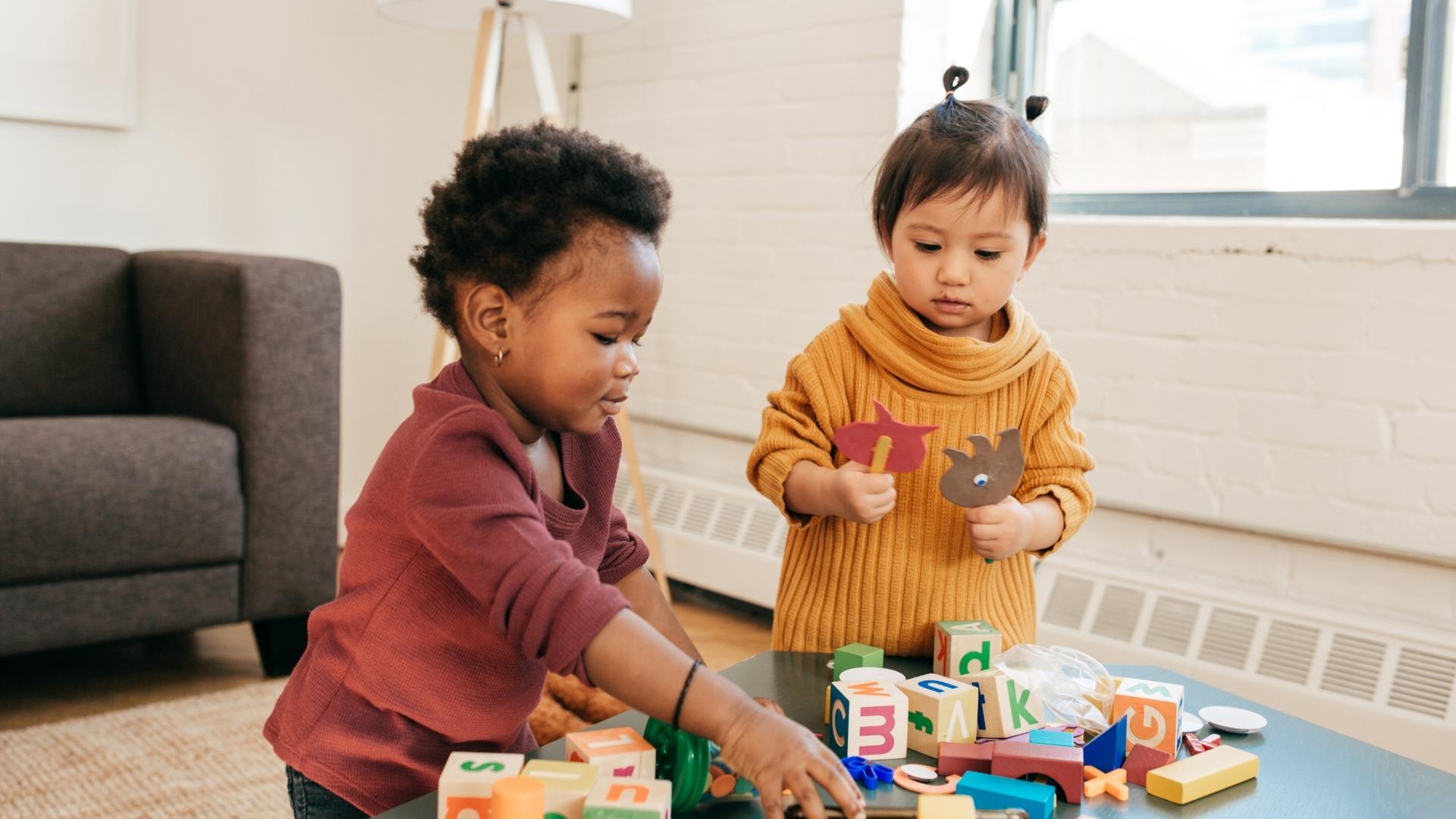Are you a parent who’s curious about your child’s development? Have you ever heard of associative play, but aren’t quite sure what it is or why it matters? Look no further! In this article, we’ll explore what associative play is, when children typically engage in this type of play, and how it differs from other forms of play. Plus, we’ll share some examples of associative play and the main benefits it offers.
What Is Associative Play?
Associative play is a crucial developmental milestone that is the gateway stage to playing with others. It is the 5th stage of play where your child will start to interact with other children of their own age. They will play alongside others by observing what they are doing and mimicking their play… but, children will not play together in a cooperative way yet.
Characteristics Of Associative Play
The main characteristics of associative play are:
- Children will play alongside each other but not with a common goal,
- They will take an interest in what others are playing with and doing but may not directly engage,
- There is very little communication between the children,
- They may trade for toys and maybe start sharing and taking turns,
- Children may also begin to play together in a chaotic fashion.
At What Age Is Associative Play?
Typically, young children will show signs of associative play at around 3 years of age. This is when their language skills are well developed and they are able to choose who they wish to play alongside and what activities they are interested in.
The Six Stages Of Play
Here’s a quick recap of the 6 types of play you can expect your little one to engage with during the early years.
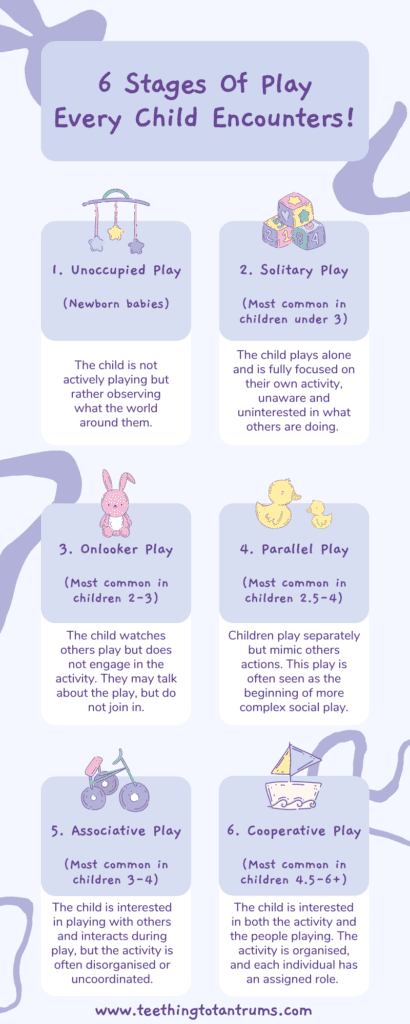
- Unoccupied play– Newborn
- Solitary Play– 4 months and up
- Onlooker Play– 2 to 3 years
- Parallel Play– 2 to 3 years
- Associative Play – 3 years
- Cooperative Play – 4 to 5 years
To learn more about Mildred Parten’s 6 stages of play, I’ve written an in-depth post talking about each stage and why they’re important for children. So be sure to check that out after reading this post.
What Is The Difference Between Associative and Cooperative Play?
As mentioned earlier, associative play happens before cooperative play. You will know that your child has progressed to cooperative play when they start to play with other children with a common goal.
Their social skills will have developed and they will start to share willingly, contribute ideas to play and also listen to what others have to say.
Looking to get your little one to sleep quickly and effortlessly? Check out my Bedtime and Nap Cheat Sheet and master the art of making daytime naps and bedtimes as seamless as possible.
A bedtime & nap cheat sheet so good your little one will ask you to put them to bed...
Laura Williams "This is a life saver! I'm so glad I downloaded your bedtime & nap cheat sheet. My little one actually asked me to put him to bed last night! Unbelievable! Thank you so much!"
Click Here For The FREE Cheat Sheet
How Does Associative Play Promote Language Development?
Associative play promotes language development because this stage requires your child to start communicating with their peers.
During associative play, your child will need to talk to others as they learn how to swap and exchange toys (not always successfully!) and express their desire to take turns, including others or not.
Your child will need to develop their social skills to communicate with others about what they want and they will also be more curious and want to ask questions about what others are playing with.
What Are The Benefits Of Associative Play?
There are so many developmental benefits of associative play:
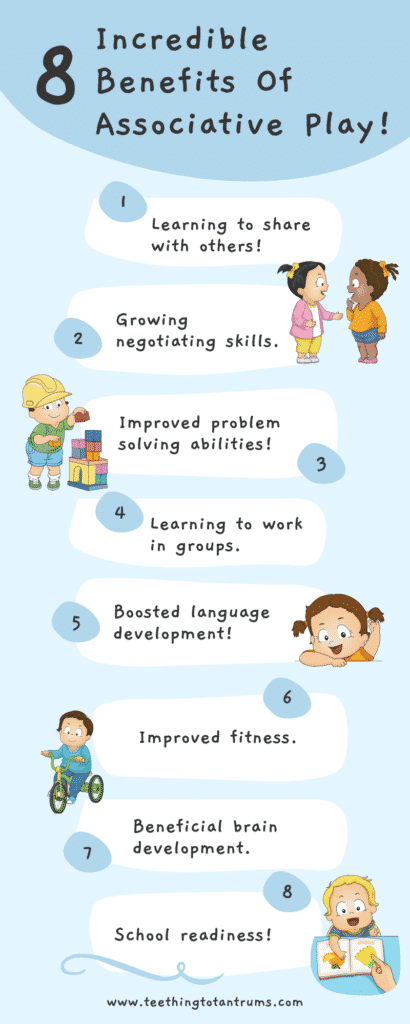
1. Learning To Share
Learning to share is a tough skill for young children to learn, but during associative play, they will learn that they need to use words rather than actions to share.
Sharing at this stage may not necessarily mean playing together but rather taking turns by giving up a toy or asking if they can have a go.
You can also help your toddler understand this concept by introducing books that address this in a fun story. Here’s one of my favourites:
2. Growing Negotiating Skills
Sharing naturally leads to negotiation at this stage of social interaction and play development.
Children will need to learn how to ask for a toy nicely, suggest that they can have a turn or offer up a toy to swap. This is quite a complex skill and one that we as humans will use throughout our lives.
3. Improved Problem Solving
Problem-solving goes hand in hand with the two previous points.
In order to play successfully with others, children will need to come up with a plan.
However, at this developmental stage, their problem-solving will be purely selfish and it will be designed to get them what they want (not about others, just yet)
4. Learning To Work In Groups
Associative play is the first time children will start to play in groups. They will communicate, ask questions and express their desires but play will be chaotic and will not be driven by a common goal.
However, children will begin to copy each other and start to appreciate what it is like to be doing the same as others at the same time.
5. Boosted Language Development
As I touched on earlier, the associative play stage helps with language development as children have to learn how to communicate with their peers in social settings.
Children will need to ask questions, barter and negotiate as they play.
6. Improved Fitness
This stage of play can also help with your young child’s fitness. Getting up and about and running around with other children even in a crazy fashion is good for a child’s physical well-being.
7. Beneficial Brain Development
Undoubtedly associative play takes your child’s social interaction between children to a new level. It will boost cognitive development, imagination, communication and creativity. And their emotional development will prove to be a valuable skill for years to come.
8. School Readiness
During this stage of play, children will also start to learn how to mingle with other children of their own age and start to learn the communication skills required to play and spend time with them. This in itself sets them on the road to school readiness.
How Can We Encourage Associative Play In Our Children?
The best way that we can encourage associative play is to ensure that our kids have plenty of age-appropriate play opportunities to mix with children of their own age.
Arrange play dates, attend playgroups and plan visits to the park. Encourage your children to share during communal activities such as pretend kitchens or sandpits.
I love that this table has a tough moulded lid that ensures the sand stays dry during wet weather but means your child can still play with the table regardless!
I also love the durability and easy-to-clean design of this sandpit too. It's perfect for sensory exploration for children of all ages!
TOP TIP: If your little one appears reluctant to play with others, give them time and space to observe what is going on. Try to avoid pushing them to interact with their peers before they are ready.
What Are Some Examples Of Associative Play Activities?
Here are a few examples of associative play activities that your little one may engage in with their playdates:
- Playing with the same toy as another child but not engaging in conversation with each other.
- Dressing up together.
- Playing in a pretend kitchen together.
- Doing craft activities alongside each other but not commenting on what the others are doing and working towards separate goals.
- Playing, sharing and taking turns on playground equipment, but not necessarily communicating.
- Dancing with other children.
- Sharing sand play and water play with others.
- Building towers from wooden blocks or lego creations together, but separately.
No nursery is complete without wooden blocks. They provide hours of fun and education through play from honing fine motor skills, improving problem-solving, developing creativity and teaching colours and shapes. My favourite is this colourful set from Melissa and Doug.
3 Common Concerns About Associative Play
Some children will take longer than others to start engaging in associative play. This is very normal however, it can lead to some parents worrying that their children are not moving forward socially.
So to put your mind at ease, here are the 3 most common concerns about associative play and my advice about the situation.
1. My Child Still Engages In A Lot Of Solitary or Parallel Play
It is perfectly normal for children to continue to engage in parallel play and solitary play even after they have reached the age and stage of development at which they can take part in associative play.
It is important to remember that all children develop at different rates and that continuing to engage in solitary play on occasion is a good thing.
Sometimes we all need a little bit of time to ourselves.
2. My Child Is Reluctant To Mix With Their Peers
If your child is reluctant to mix with other children… they may just be shy. Therefore, it may take them longer to start to engage comfortably with others. Allow them the space to go at their own rate.
3. My Child Stands On The Sideline And Observes Instead Of Getting Involved
If your child is standing to one side but showing interest in what other children are doing, allow them time to observe the room and offer to go with them to look at what others are doing.
With you at their side and engaging with the other children, they may feel confident enough to take part later.
If you are overly concerned about how your child is interacting with others then you should consult your paediatrician who, if they think it is necessary, may refer you to a counsellor, child development specialist or play specialist.
The majority of children will progress through all 6 developmental stages of play eventually, but the pace at which they do so will vary from child to child and will be greatly determined by their personality.
Need More Parenting Help?
- Download our FREE Bedtime & Nap Sleep Cheat Sheet. It’s a free, easy-to-use and proven formula designed for parents of 0-5 year olds to master the art of consistently undisturbed and restful sleep without the yelling, nagging or exhausting long-winded evenings.
- Check out our Parenting Toolbox. You’ll get access to expertly-chosen products that you can guarantee are the best for your little one and your wallet.
- Are you looking for personalized guidance to navigate the challenges of parenting? I offer 1-on-1 consultations to bring you tailored strategies and actionable advice to help support your child's growth and well-being with confidence.

A bedtime & nap cheat sheet so good your little one will ask you to put them to bed...
Laura Williams "This is a life saver! I'm so glad I downloaded your bedtime & nap cheat sheet. My little one actually asked me to put him to bed last night! Unbelievable! Thank you so much!"
Click Here For The FREE Cheat Sheet


